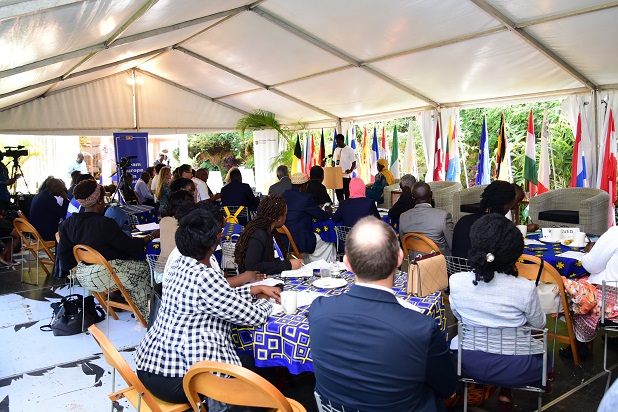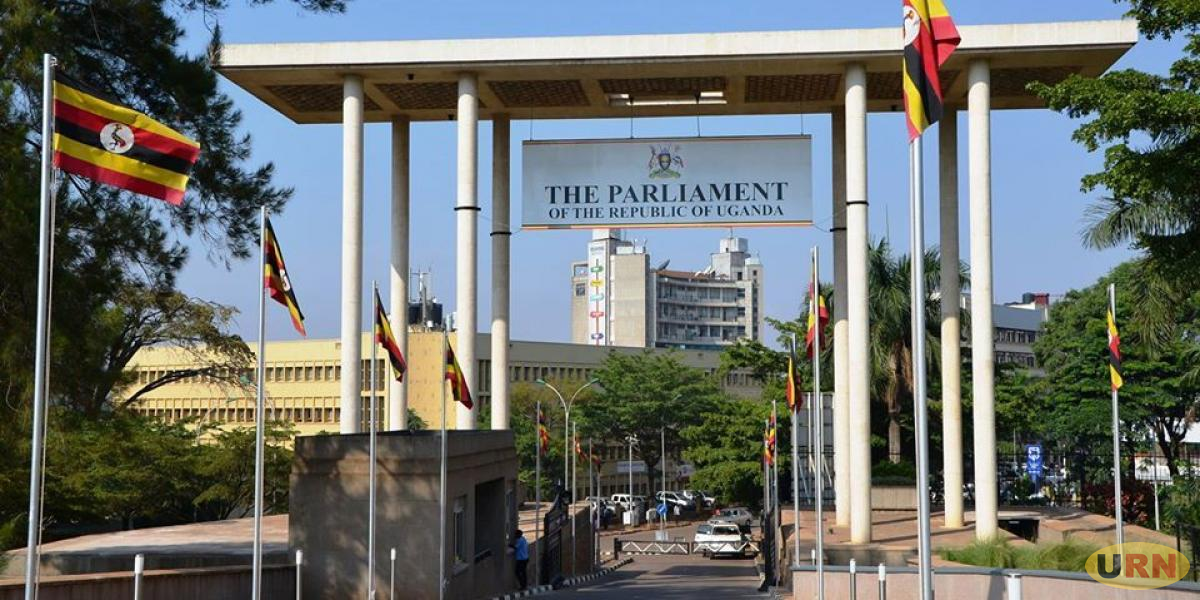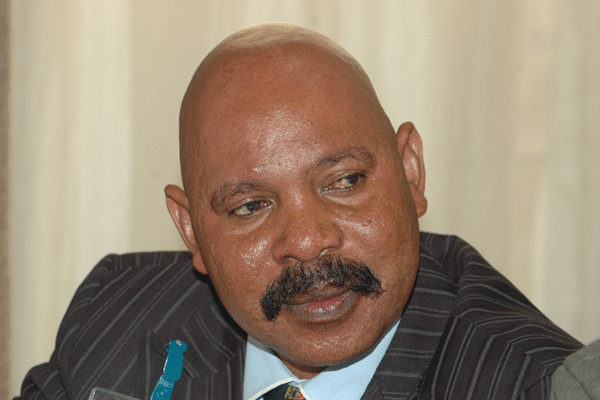Dr. Jimmy Spire Ssentongo, the Head of Department of Philosophy at Makerere University delivering his keynote presentation
In 2007, the United Nations General Assembly resolved to observe September 15, 2022 as the International Day of Democracy – with a purpose of promoting and upholding the principles of democracy – and invited all members and organizations to commemorate the day in an appropriate manner that contributes to raising public awareness. The day provides an opportunity to review the state of democracy in the World.
In Uganda, this year’s celebration was held On September 20, 2022 and hosted by the Embassy of Sweden in Uganda.
A number of stakeholders re echoed the need to protect the rights of all groups in society.
European Union Ambassador – designate, Jan Sadek, said that the International Day of Democracy is always an occasion for all of us “who believe in the democratic model to protect the rights of all groups in society and to reaffirm our commitment to those values.”
“It offers us a chance to pause and reflect on the importance of democratic institutions and processes, but also to take a critical look at how democracy is evolving and to examine the many challenges we face,” Sadek said.
According to Sadek, the links between religion and democracy provide a fascinating ground for discussion.
He observed that: “Ugandan history bears examples of the sometimes conflicting relations that exist between moral authority and political power. The tragedy of the Martyrs of Uganda is one of the key moments in Uganda’s history that certainly influenced rulers and people in the way they consider both the importance of religion and its relation to political power.”
As we mark International Day of Democracy, he added: “let me take this opportunity to reaffirm the EU’s condemnation of the unprovoked and unjustified invasion of Ukraine by the armed forces of the Russian Federation.”
Sadek said that the EU is committed to Ukraine’s democracy and “to the will of all Ukrainians to live free from fear of invasion and to reject the dominance by a colonial power.”
“We call for the international community as a whole to side with the Ukrainian people,” Zadek said adding, “The global picture today may seem bleak, but there is also a different story we can tell; one of hope and resilience; such as in the European history with its struggle against religious intolerance, dictatorship and repression, and its successful separation of religion and politics.”
Zadek noted that from the African continent, “we can also draw examples of religious leaders being involved in promoting freedoms, defending democracy, and challenging political power.”
In southern Africa, Zadek said, “where I recently served, there were many examples of this in the fight against Apartheid.”
“We should also recognise the wisdom of those leaders who have been able to preach religious tolerance and freedom of belief as a way of promoting a multicultural environment and developing a sense of belonging to a nation. Uganda is certainly an example of a country where religious leaders have played this role,” Zadek added.
He, however, said that politics and religion should certainly not be put into competition; both are fully needed in well-functioning societies.
“Nation and people need the moral compass provided by faith and hope, whether it is provided by religion or any other form of spirituality. But nations and people also need those political debates and an open political environment guaranteeing freedom of expression, of assembly and political participation of all,” he explained.
Challenges exist in every country, Zadek noted, “and in Uganda I am aware of reports that members of the Muslim faith have been unfairly targeted by security operations and that some faith based organisations were affected when NGOs were suspended last year.”
In doing so, he says “we will emphasise both the demand and supply side of the democratic governance equation, and by this I mean supporting a diverse and independent civil society, and at the same time forging strong partnerships with state institutions and agencies.”
Zadek says that he would like to have an open and respectful dialogue with the Government of Uganda around “our shared values of democracy, human rights and respect for the rule of law.”
Dr. Jimmy Spire Ssentongo, the Head of Department of Philosophy at Makerere University while delivering a keynote presentation on the topic “Religion and democracy in Uganda: A historical perspective” concluded that “what is very clear is that religion has been critical in Uganda’s journey of building democracy – both as a progressive and problematic factor.”
“The most significant contribution in my view is the indirect one, through fostering education to address illiteracy, ignorance, and boost civic agency. While some Ugandan religious leaders have actively lobbied for governments, or silently condoned authoritarian practices, others have sought to expand public debate by voicing popular concerns. The choices of religious actors have been shaped by state behaviour, fear, individual character, material interests, and variated circumstances. Diminishing non-government funding amidst huge capital ventures has also increased the vulnerability of religious leaders to state manipulation,” Ssentongo said.
He noted that while the conscience of religion is important in the democratization process, Uganda’s history has as well showed that the agency of religion also needs to be regulated by the state.
Quoting Robert Heinlein, Ssentongo said “almost any sect, cult, or religion will legislate its creed into law if it acquires the political power to do so”.
Ambassador of Sweden to Uganda, Maria, said that the promotion of democracy and human rights has always been a part of the DNA of the Swedish foreign policy but that “today it has an even more prominent role in our work.”
Three years ago, Maria Håkansson said Sweden launched the Drive for Democracy – a global and cross-regional initiative aiming to promote and strengthen democracy and the rule of law worldwide.
According to Håkansson , the Drive for Democracy extends across all aspects of Sweden’s foreign policy, including security, development and trade policy.
“My country is convinced that democracy is the best foundation for a sustainable society. Research shows that a democratic, inclusive and equal society provides opportunities for all to achieve their full potential and participate in the development of society in a way that other systems of government cannot do. Democracy enables you to make your voice heard and gives you the right to influence and demand accountability. Democracy provides hope and the conditions to shape a common future in a safe and peaceful society. But the structures of democracy must be strong and must be protected,” Håkansson said.





